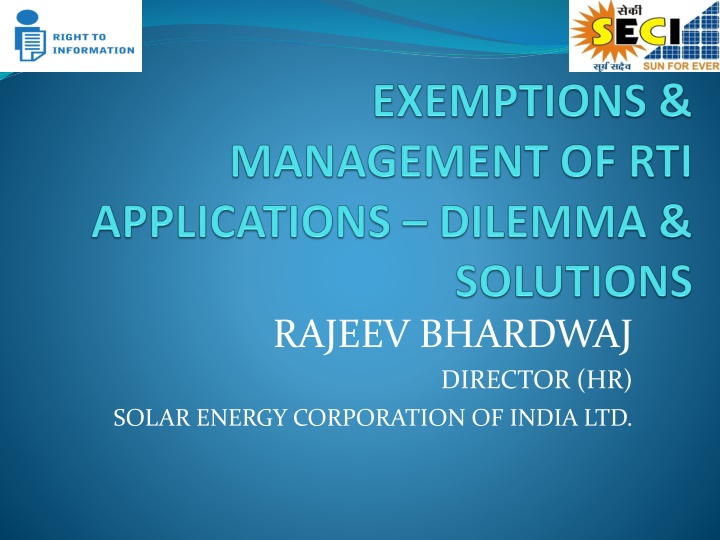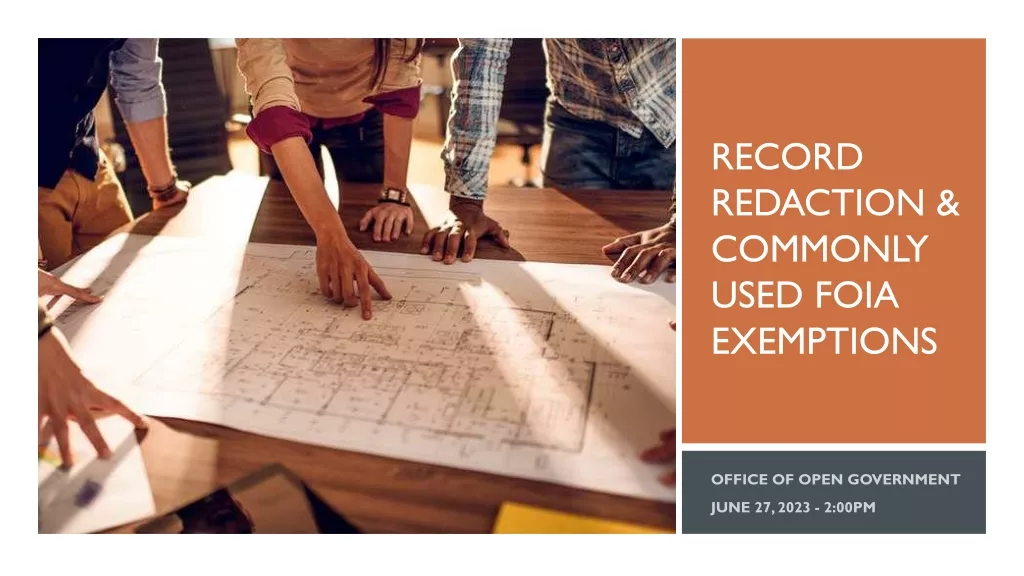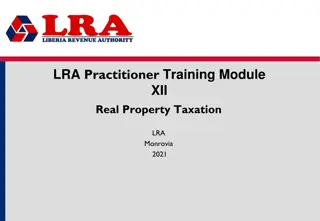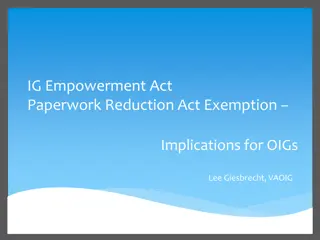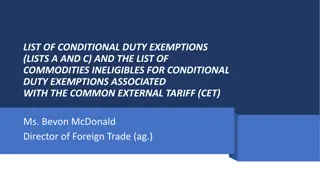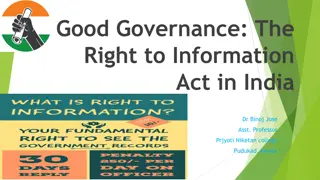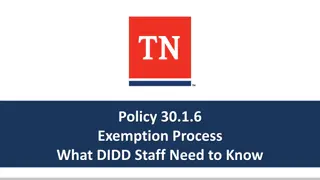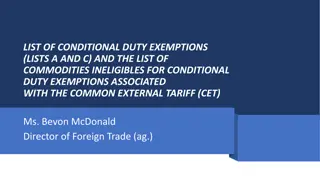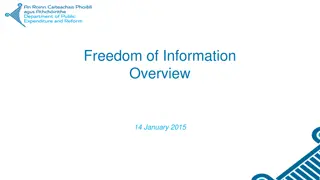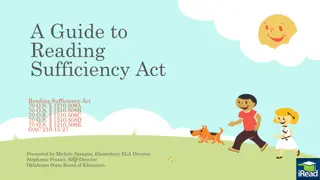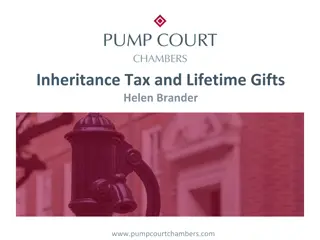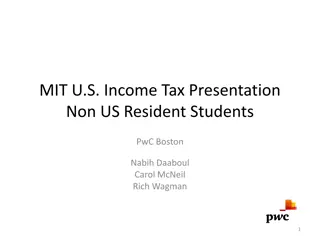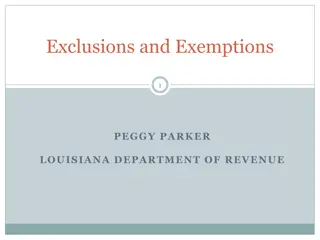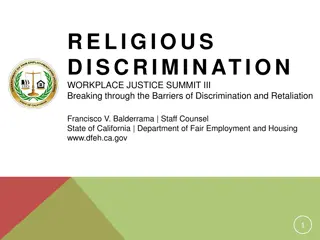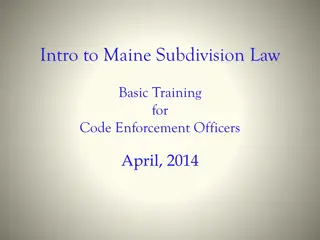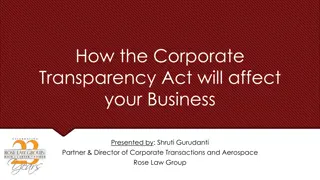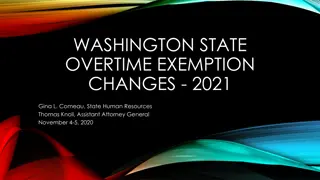Exemptions in the Right to Information Act
The Right to Information Act in India provides citizens with the right to access information, but there are exemptions outlined in Sections 8(1) and 9. These exemptions include provisions to protect public and private interests, commercial confidence, trade secrets, and intellectual property. The authority withholding information must provide valid reasons for doing so, ensuring transparency and accountability in information disclosure.
Download Presentation

Please find below an Image/Link to download the presentation.
The content on the website is provided AS IS for your information and personal use only. It may not be sold, licensed, or shared on other websites without obtaining consent from the author.If you encounter any issues during the download, it is possible that the publisher has removed the file from their server.
You are allowed to download the files provided on this website for personal or commercial use, subject to the condition that they are used lawfully. All files are the property of their respective owners.
The content on the website is provided AS IS for your information and personal use only. It may not be sold, licensed, or shared on other websites without obtaining consent from the author.
E N D
Presentation Transcript
RAJEEV BHARDWAJ DIRECTOR (HR) SOLAR ENERGY CORPORATION OF INDIA LTD.
EXEMPTIONS IN THE RTI ACT Before enactment of the RTI Act, by way of catena of Judicial pronouncements/orders, the right to information was explicitly held to be a Fundamental Right under the constitution of India. [Freedom of Speech and Expression] Even restrictions on these Fundamental Rights. Constitution provides for certain
EXEMPTIONS The whole Act provides for Procedures and Regulations for Disclosure of the Information . [as defined u/s 2(f)]. Subject to Provision of this Act, all citizens shall have the Right to Information.[Section 3] Every Public Authority shall Provide reasons for its administrative or quassi-judicial decisions to affected persons.[Section 4(1)(d)]
EXEMPTIONS The Act provides for specific Exemption from Disclosure under Section 8(1) and 9. But for not disclosing the information, other provisions under sections 7(9), 10, and 11 are also being applied by the PIOs. Section 8(1) begins with a non-obstante clause and stipulates that notwithstanding contained in this Act, there shall be no obligation to giveany citizen, --- There are 10 exceptions or exclusion stated in Section 8(1) (a) to (j). anything
Exception Sub-clauses (a) to (j) are in the nature of alternative or independentclauses. Access to information U/S 3 is the Rule and exemption U/S 8(1) the exception. Section 8 being a restriction on the fundamental right, it must therefore be strictly construed. It should not be interpreted in manner as to shadow thevery right itself. The mere existence or apprehension of any exception provisions cannot be a ground refusal of the information. for
Exceptions The authority withholding information must show satisfactory reasons as to why the release of such information would hamper the public and/or private interestas the case may be. Such reason should be germane and opinion should be based on some material facts. Otherwise Section 8 would become the haven for dodging demands for information.
Exception The most widely used exception in the CPSUs are Sections 8(1)(d), (e), (h), and (j). Commercial Confidence, trade secrets or intellectual property, the disclosure of which would harm the competitiveposition of the third party Third Party includes publicauthority [u/s 2(n)] Competent Authority [u/s 2(e)] in case of CPSUs is the President, it is distinct & does not mean public authority or PIO.
Exception General Public as an information seeker equate PSUs with any other Govt. Department. They believe PSUs are using Public Fund and being a Public Authority under Act is required to disclose all information, decisions and trading practices. including business But when confronted with the facts & material that PSUs are also a Business Entity and compete in the market, the perception changes.
Exception FIDUCIARY RELATIONSHIP Husband/Wife Trustee/beneficiary (Section 88, Indian Trust Act, 1882) Guardians/wards Guardians and Wards Act, 1890) Legal (Section 20, Lawyer / client Executors and Administrators / legatees and heir
Fiduciary Board of Directors /Company; Liquidator / Company; Receivers, trustees in bankruptcy and assignees in insolvency / creditors; Doctor / patient; Parent / Child;
Fiduciary relationship It may be involuntary; formal, informal, voluntary or It may be created by a contract but they differ from contractual relationships for they can exist even without payment of beneficiaries; consideration by the Fiduciary loyalty and obligation requires complete subordination of self-interest exclusively for the benefitof the beneficiary. and action
Exception The clause impede the process of investigation is widely used in cases Departmental Inquiry. of Vigilance and/or Such exception should be based upon some material facts as to how disclosure may impede the process of investigation.
